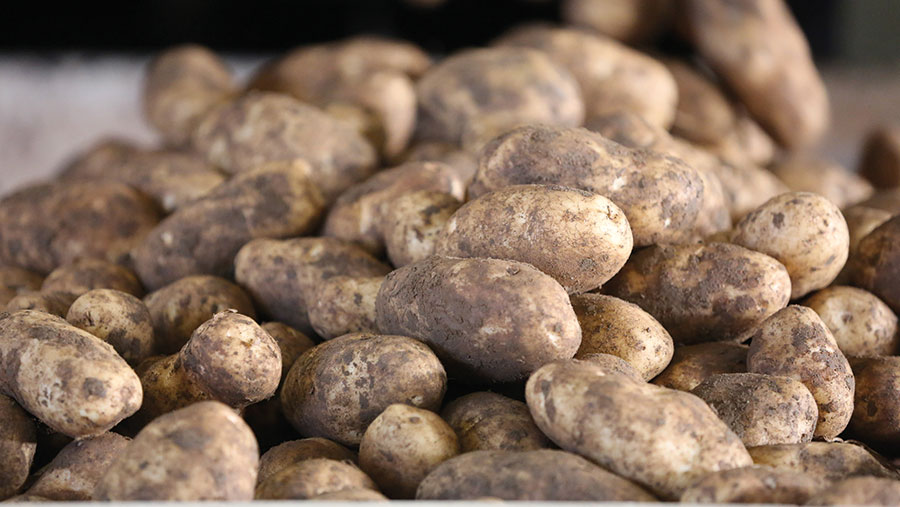Potato store project aims to help farmers cut storage costs
 © Tim Scrivener
© Tim Scrivener A new project established by an industry consortium aims to help potato growers fine-tune their storage practices, thereby improving returns through more efficient energy use.
Based on the Strategic Potato (SPot) Farms model run by AHDB Potatoes prior to its demise, the SPot stores project kicked off with two sites in Lincolnshire.
See also: What is GB Potatoes and why should farmers join?
The consortium consists of GB Potatoes, storage specialist Adrian Cunnington of Potato Storage Insight, and agronomist Simon Faulkner from SDF Agriculture.
Their work is being supported by commercial partners from the potato storage industry.
Adrian points out that there is currently a lack of practical research in storage, and very limited funding available for any research.
He says: “However, rather than revisiting old trial results on paper, we believe that practical activity will help growers better understand how to refine their own storage facilities’ performance.
“Seeing things done in a commercial set-up helps our hosts and partners share experiences with visitors who can then go home and confidently apply them in their own stores.”
Adrian added that the work will help improve returns, as they will be monitoring and benchmarking costs such as energy.
“To be sustainable and make a realistic margin, potato stores need to be profitable, so tuber quality needs to be good and costs transparent and controlled.”
NFU Energy’s Roger Stones points out that refrigeration can account for up to 80% of electricity costs, therefore being a logical area for farmers to focus on when looking to cut costs.
The project has kicked off at two sites in Lincolnshire:
- Winters Lane is a cold store (3C) for potatoes destined for the pre-pack fresh market
- White House Farm is a refrigerated store used for processing potatoes.
In addition, potato cyst nematode (PCN)-resistant varieties are being kept in the two stores.
These include existing ones, such as Buster and Elland, along with future varieties that are not yet commercially grown.
“This will assess the storability of useful PCN-resistant varieties that are set to help growers develop an effective strategy against PCN.” says Simon.
Results from this winter will be shared with farmers at an open day in May 2024.
Growers and their advisers attending the open days will get to see the setup, and return to find out how practices develop over future seasons, explains Adrian.
Learnings from the SPot stores will also be shared at other workshops run by GB Potatoes in Yorkshire and Shropshire in 2024.
Looking to the future, the consortium hope to add more locations, as well as store types.
Farmers wishing to get involved are urged to sign up to the project on the GB Potatoes website.
There are still opportunities for commercial partners to support the initiative by contacting Mr Cunnington at adrian@potatostorageinsight.com.
